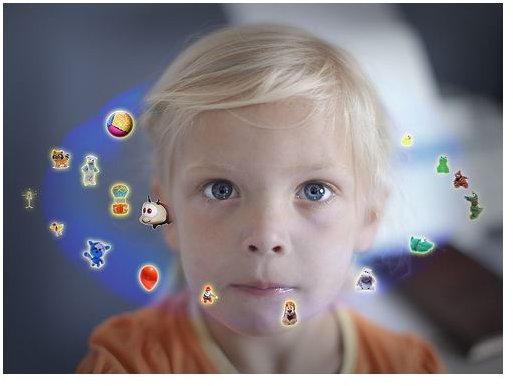Does My Child Have ADHD? Learn the signs and symptoms of ADHD in Children.
ADHD or Normal Behavior?
The hallmark symptoms of attention deficit hyperactivity disorder (ADHD) or attention deficit disorder (ADD) are inattention, hyperactivity and impulsivity. The symptoms can exist independently or be combined (with hyperactivity/impulsivity, the condition is called ADHD and without it, ADD, but the terms are often used interchangeably). All children show these kinds of behavior at one time or another, depending on age and stage of development, but for a diagnosis of ADHD or ADD, certain conditions must exist. Consider the following criteria from the American Psychiatric Association’s diagnostic standard as you ask yourself, “Does my child have ADHD?”
According to the Diagnostic and Statistical Manual-IV, Text Revision (DSM-IV TR), a child must display six or more symptoms in the categories of inattention and/or hyperactivity/impulsivity, and the symptoms must:
- be present for at least six months to a degree that is not appropriate for the child’s level of development.
- have been present before the age of 7.
- be present in at least two settings (for example, both at school and at home), and clear evidence must exist of the child’s impaired function in these settings.
- not be attributable to other conditions that may be present, for example an anxiety or mood disorder.
Inattention
Your child’s continued inability to concentrate may signal ADD or ADHD. Does he or she make careless mistakes in their schoolwork? How is their attention to detail? Can they finish assignments? Can they focus on the task at hand or are they easily distracted? Do they have trouble with organization or avoid activities that require sustained mental effort, such as homework? Do they appear to not listen when you speak or have trouble following instructions? Are they forgetful or do they frequently lose things?
Hyperactivity
Does your child constantly fidget, even when he or she needs to be still? Does he stay in his seat at school or go wandering around the classroom at inappropriate times? Does he seem to have excess energy, running around, jumping or climbing when he shouldn’t be? Does he have a difficult time playing quietly? Is he constantly moving from one activity to another? Does he talk too much? Does he have trouble slowing down?
Impulsivity
Does she constantly interrupt, blurt out answers prematurely or have trouble waiting her turn? Does she often act, regardless of consequences? For instance, will she take a bite of the cookie she’s not supposed to have before she hands it back to you or touch something she’s not supposed to even though you are right there telling her not to?
Does My Child Have ADHD?
ADHD or ADD must be diagnosed by a health care professional. If you suspect your child has ADHD, begin with his pediatrician, who may assess the child and then refer you to an experienced mental health provider. Between them, they will rule out other possibilities for your child’s behavior, such as hearing or vision problems, learning disabilities, anxiety or recent emotional trauma. No single test exists that can diagnose for certain whether you child has ADHD. Rather, the diagnosis is made after your health care professional has gathered information on your child’s behavior and environment, through interviews and questionnaires.
If no other conditions exist to account for the symptoms, and if your child meets the criteria of having at least six symptoms present before age 7 which significantly impair functioning in at least two settings, your doctor or mental health provider may diagnose ADHD.
In the meantime, educate yourself. If your child does indeed have ADHD, you will need to consider what action to take, if any. Children with ADHD are often treated with a combination of medication and behavioral therapy. Some parents may opt for therapy alone. Some believe ADHD can be controlled with diet. It will be up to you to determine what course of action to take for your child’s best interests. The decisions will not be easy, but knowledge about ADHD is your best ally in determining how you help your child.
References
Medline Plus: Attention Deficit Hyperactivity Disorder
National Institute of Mental Health: Attention Deficit Hyperactivity Disorder
Photo by Tony2, available under a Creative Commons Attribution-Noncommercial license.
